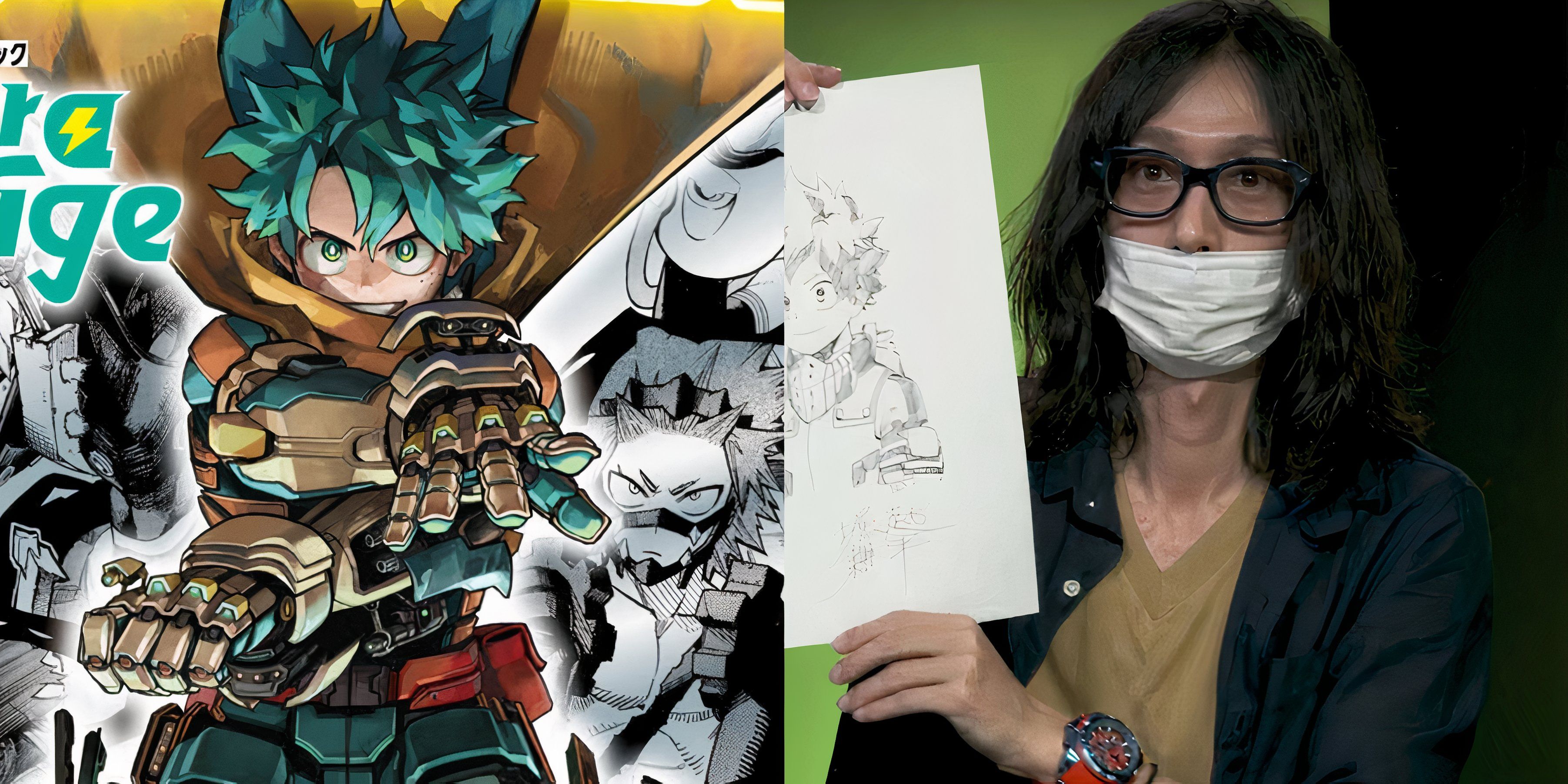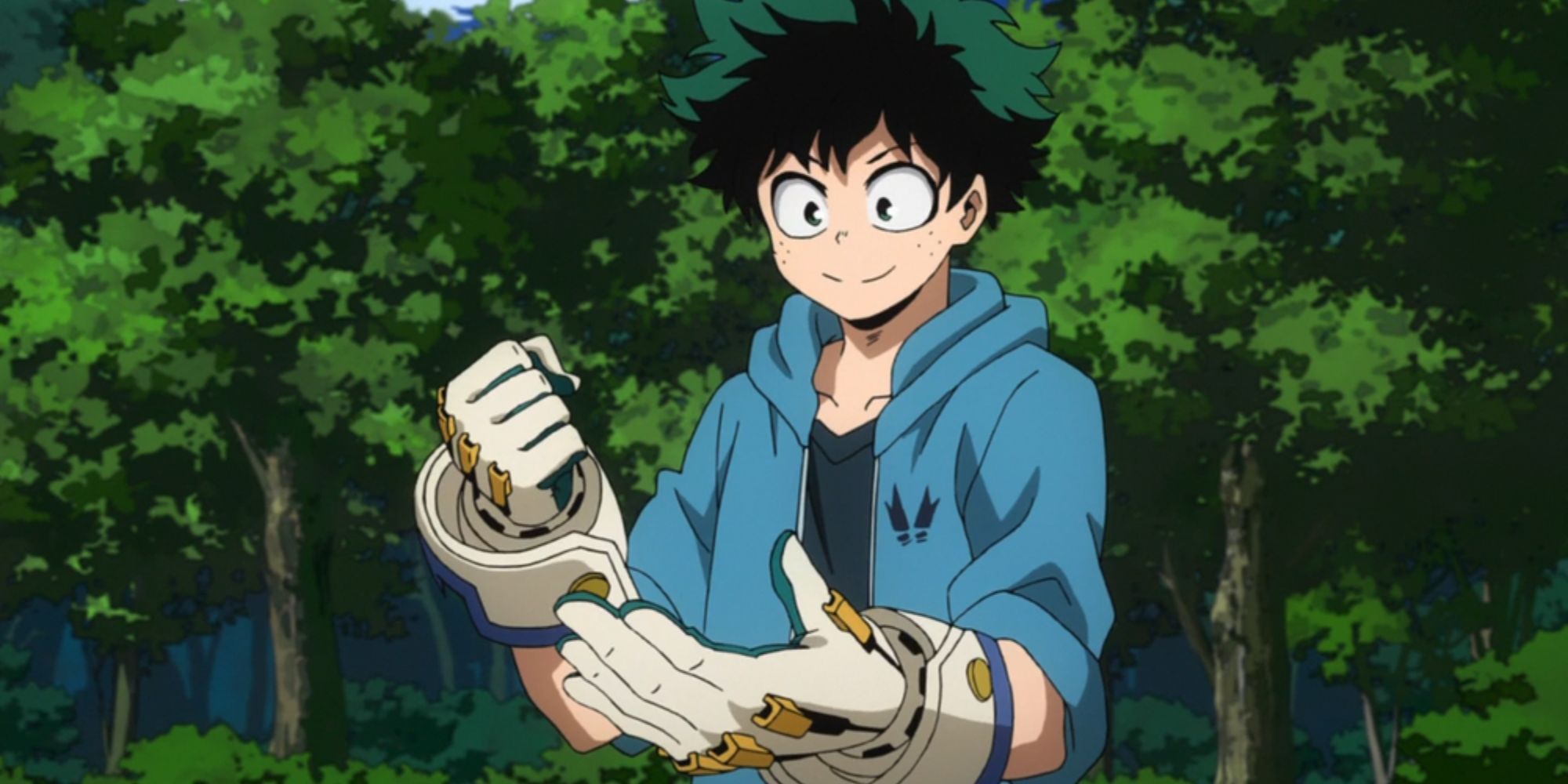Summary
- Deku’s heroism involves saving even villains, sparking admiration and skepticism.
- Some fans support Deku’s belief in redemption, while others find it naive and unrealistic.
- My Hero Academia explores the moral complexity of saving villains amid strong fan reactions.
Being a hero is not an easy task as it involves putting oneself in danger countless times. One thing about heroes in My Hero Academia is that they make quick decisions in the face of danger that can either save their lives and the lives of others or kill a lot of people around them.
While some heroes are known to leave villains to face a well-deserved death, heroes like Deku see the good in everyone and are well assured that everyone, especially villains, deserves a second chance. This behavior of Deku is admirable but also quite questionable and has stirred up some concerns and questions among the My Hero Academia fandom, as some villains are better off dead, gone for good, as they have no will or determination to be better.
Related
My Hero Academia Artbook Cover Revealed
My Hero Academia will release an artbook with never-before-seen artwork in June.
Deku’s Heroic Ideal Vs. Naivety
One Side Sees Hope And Empathy, The Other Sees A Lack Of Pragmatism
|
Name |
|
|
Alias |
|
|
Fighting Style |
|
From the beginning, Deku has been portrayed as a hero who will risk himself to rescue anyone in need, including villains who show signs of humanity. He believes that a true hero should try to save even those who have strayed, believing there might be a crying child just like Tenko in Shigaraki, deep inside a villain that needs help. Supporters of Deku’s approach see this as the ultimate form of heroism, a compassionate refusal to give up on anyone.
On the other hand, a portion of the fandom finds Deku’s stance naive, believing that extending a hand to villains after heinous crimes is unrealistic and even foolish. Fans have called Deku insulting names for attempting to save someone as murderous as Tomura Shigaraki with no clear plan on how to actually change him.
The Paranormal Liberation War Arc: A Turning Point
Some Saw A Child Worth Saving, Others Saw A Threat Beyond Redemption
During this arc, Shigaraki kills thousands and even nearly murders Deku’s closest friends. In the midst of this, Deku experiences a startling moment as he senses the presence of Tenko Shimura, the innocent child Shigaraki used to be, crying within the villain’s subconscious. This glimpse of the crying boy deeply affects Deku.
After the war’s end, Deku outright tells the vestiges of One For All, which includes Nana Shimura, Shigaraki’s grandmother, that he is not going to kill Tomura, because he believes the crying little boy in him needs saving. Some fans were moved by Deku’s resolve here, while others reacted with disbelief because, given Shigaraki’s crimes, some felt that Deku’s sentiment made the war seem less serious/dangerous.
Final Act Saga: Deku’s Beliefs Put to the Test
To Some, He Stayed True To His Ideals—To Others, He Still Couldn’t Let Go
After the war, Deku leaves U.A. and operates solo for a time, but notably, his stance on saving villains does not waver. He faces Muscular, a remorseless villain who nearly killed a child, and Deku attempts to reason with him or get him to stand down. Muscular refuses any redemption and proclaims his love of violence. Deku pragmatically responds by decisively knocking Muscular out, essentially saying he tried talking and it didn’t work , so he has to keep trying.
Deku also encountered Lady Nagant in this arc, who was a former hero turned assassin. Deku shows understanding of how Hero Society’s dark side pushed her to villainy, and his compassion actually convinces Nagant to help him. Although Nagant was working for All For One, Deku’s attempt to save her spirit succeeds enough that she turns on the true villain, and All For One punishes her for it by killing her. This outcome was ammunition for fans who like Deku’s approach, as it demonstrated that redeeming a villain was possible and narratively satisfying.
During the all-out Final War at U.A., Deku clashes with Shigaraki again, with the intention of stopping him, but also of reaching whatever remains of Tenko inside. The battle is brutal and emotional. At one high point, Deku restrains Shigaraki with Blackwhip and cries out that while he can’t let Shigaraki destroy everything, he also can’t pretend he didn’t see that crying boy inside him.
This shows Deku’s determination to save the villain’s heart, and reactions among fans were intense. Fans who supported Deku’s beliefs felt proud seeing him stay true to them in the final battle. To them, it was important that Deku stayed true to the kind of hero All Might inspired him to be, one who saves even the enemy from themselves. On the flip side, skeptics remained vocal through these chapters as they expressed that they were tired of Deku’s fixation on saving Shigaraki.
Some See Broken People, Others See Dangerous Villains
A major reason Deku’s approach splits the fandom is his belief that many villains are products of trauma and societal failure, not pure evil. My Hero Academia gives characters like Shigaraki, Toga, Dabi, Twice, and Lady Nagant tragic backstories that explain how the system broke them. Deku’s goal to save them, especially Shigaraki, is rooted in the idea that understanding villains prevents future ones. Fans who support Deku say this shows that growth in heroism is not just punishing evil, but healing it.
However, not everyone agrees that trauma should excuse villainy. Some fans argue that empathy shouldn’t override accountability because acknowledging a villain’s pain doesn’t erase the damage they’ve done. Cases like Hawks killing Twice highlight this split; some felt it was necessary despite Twice’s tragic past. Others fear Deku’s stance leans too much into talk-no-jutsu, making serious crimes seem less important or forgivable.
A Hero’s Journey, A Fandom Divided
Some See A True Hero, Others See A Naive One
Izuku Midoriya’s choice to save villains is one of My Hero Academia’s most debated themes. Supporters see it as the true legacy of All Might, offering hope and compassion in a violent world. Critics call it unrealistic and worry it downplays the harm villains cause.
Horikoshi finds a middle ground, showing both mercy and consequences, especially with characters like Shigaraki. While this doesn’t please everyone, it adds moral complexity and challenges typical shonen tropes. In the end, Deku’s journey stands out because it raises tough questions about justice and heroism, sparking strong reactions that show just how deeply the story resonates.

More
My Hero Academia Author Horikoshi Set To Reveal Adult Deku’s New Powers
Not much is known about adult Deku’s abilities in MHA. Horikoshi is about to reveal all about it.



